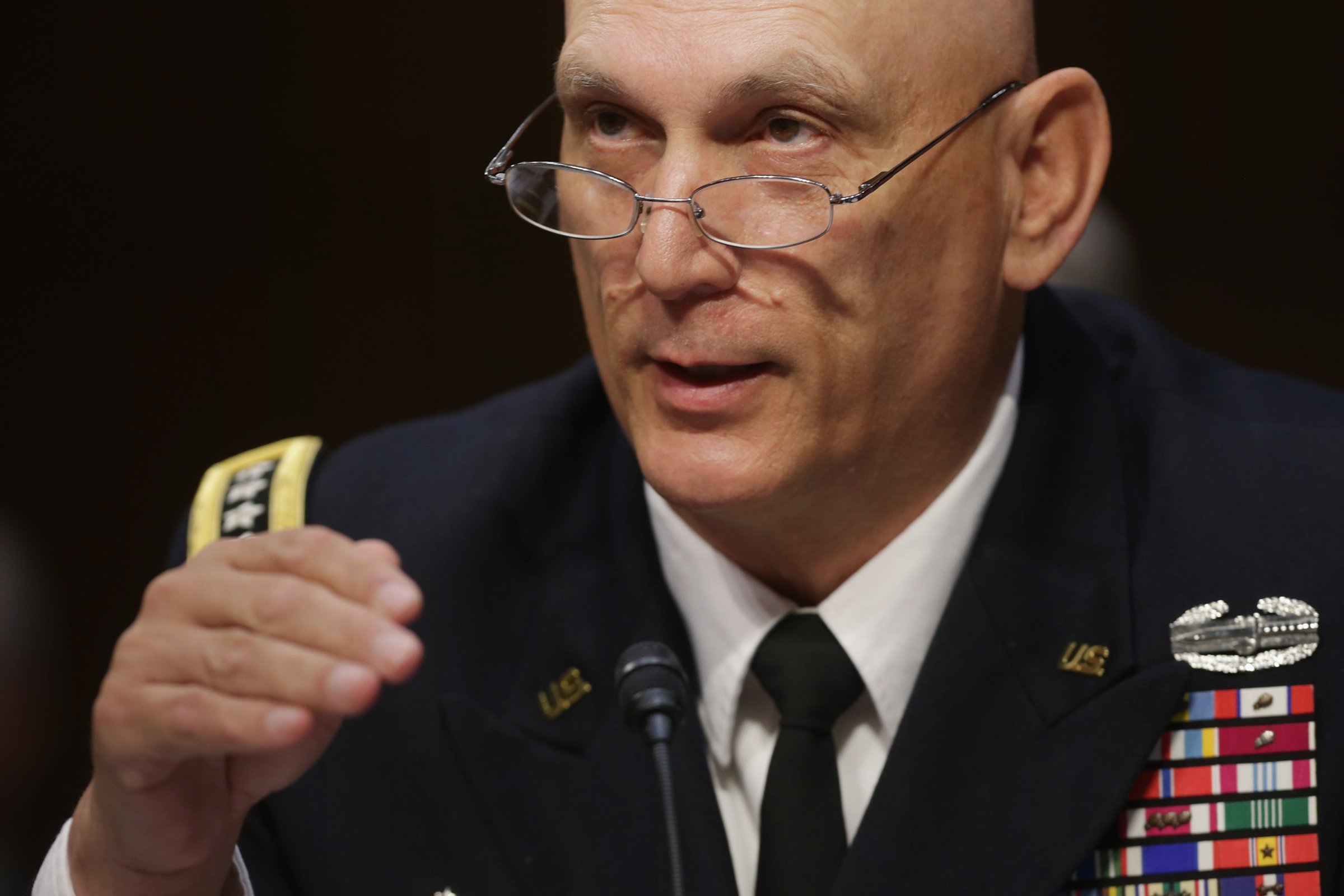
At 60, Ray Odierno may be an old soldier. But he has yet to fade away.
He’s now serving as the Army’s top officer, following three senior assignments in Iraq between 2003 and 2010. Few, if any, commanders wearing a U.S. military uniform have spent as much time as the Army’s 38th chief of staff trying to get the nation’s post-9/11 wars right.
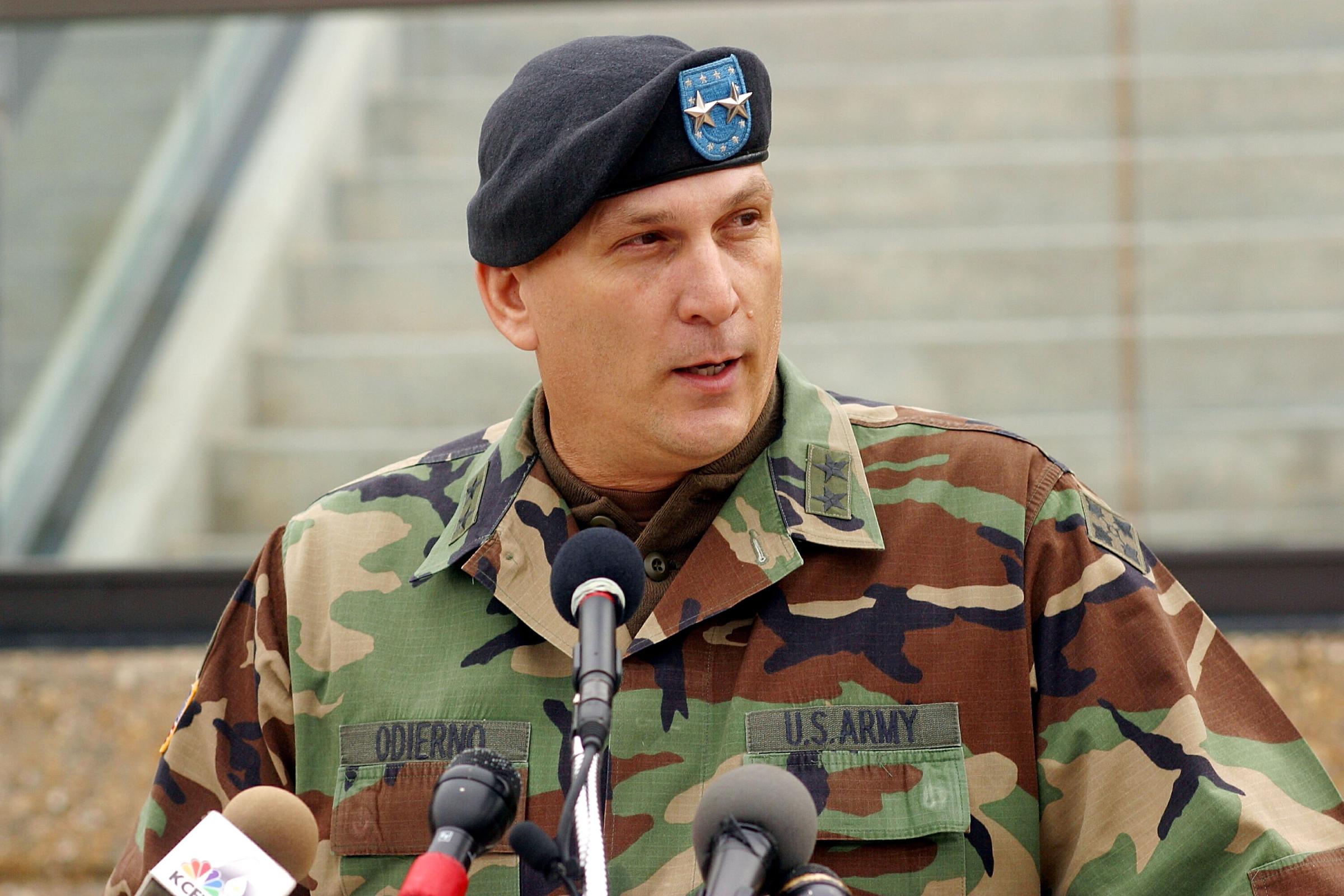
So there he was over breakfast with reporters Friday, trying to explain the U.S. military’s effort, from the sky, to rid Iraq, and then Syria, of the jihadists belonging to the Islamic State in Iraq and Greater Syria (ISIS).
“Air strikes have slowed the advances of [ISIS],” he said. “But air strikes alone won’t defeat [ISIS]. You need a complementary ground capability that will go in and do that.” He, like other Pentagon leaders, wouldn’t rule out asking President Obama to dispatch small numbers of U.S. ground troops to the fight, even though Obama has said that will not happen. “I never rule anything out,” Odierno said.
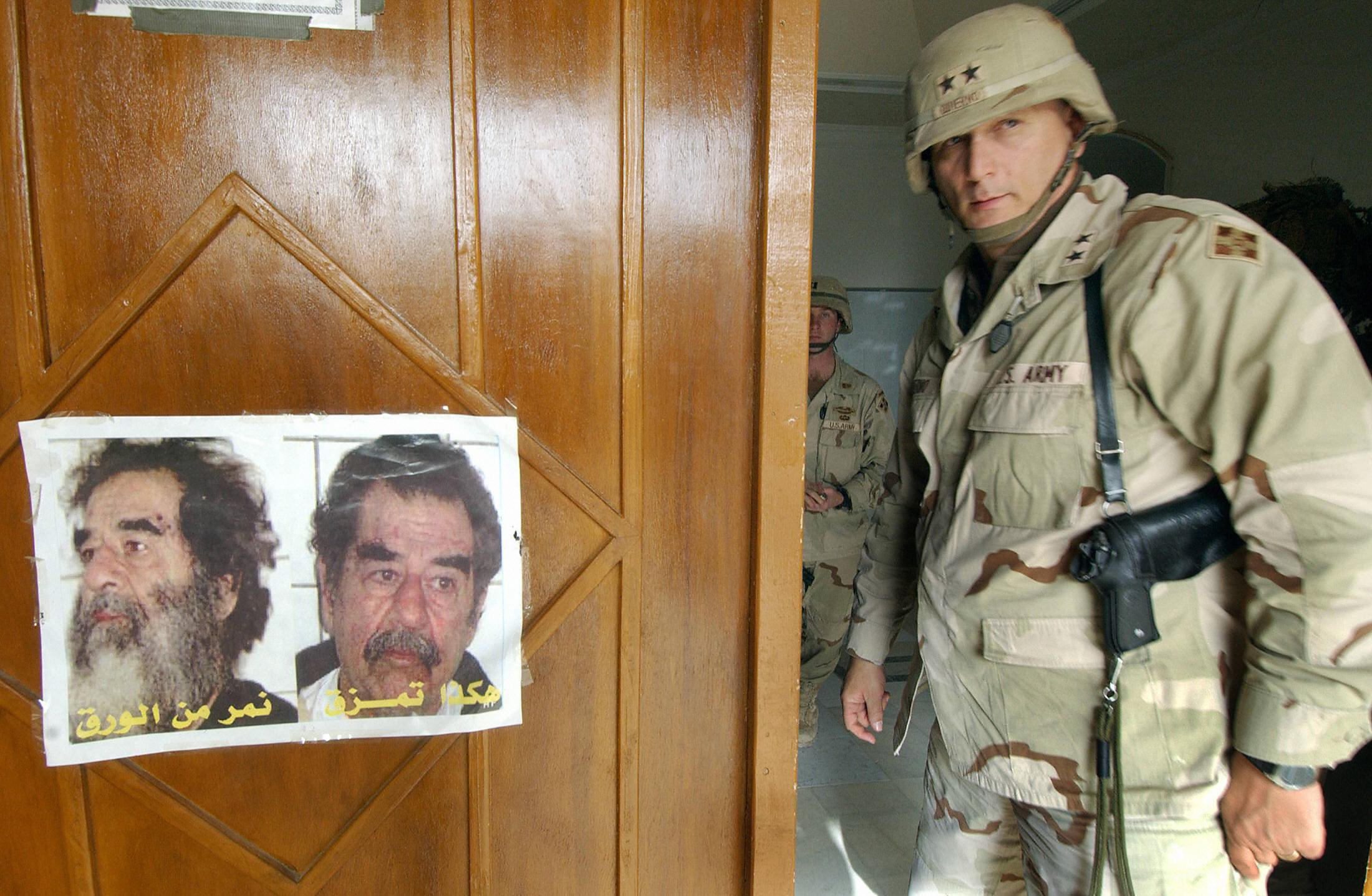
But it’s Iraqis and Syrians who will have to do most of the fighting on the ground, he added. U.S. air strikes will only drive ISIS fighters into urban areas, where innocent civilians will serve to protect them from American bombs and missiles, he warned. It will be a challenge to ensure the U.S. and its allies only train and outfit Syrian rebels dedicated to removing ISIS. “We must be sure they are who they are,” he said, “and won’t be part of some extremist group.”
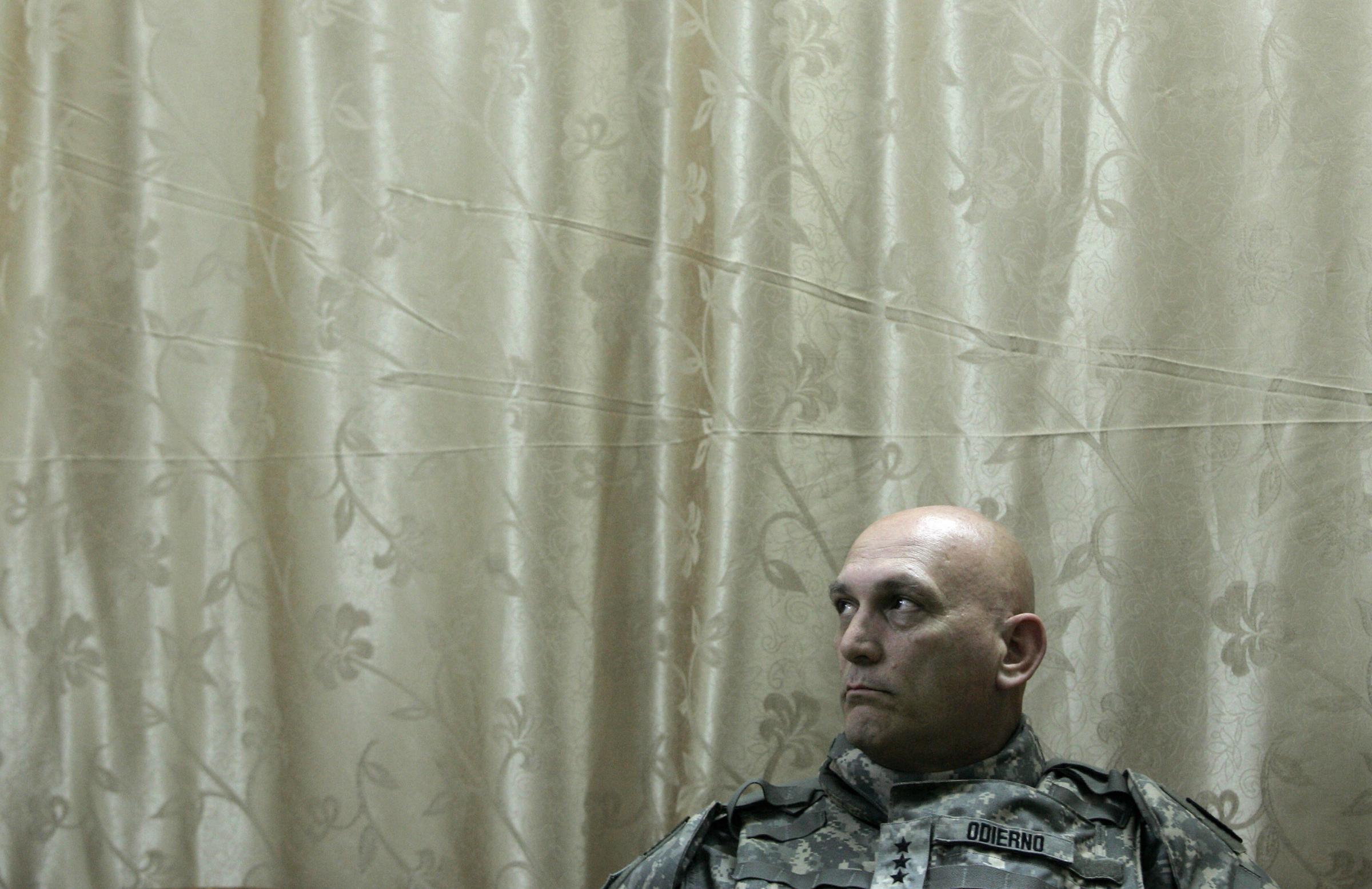
Such woes have dogged U.S. efforts in Iraq and Afghanistan for more than a decade. His recitation reminded this reporter of seeing then-Major General Odierno in Kirkuk, Iraq, in December 2003, explaining how things were going in the 4th Infantry Division he commanded. Attacks on his troops were down, and they were hot on Saddam Hussein’s tail. A week later, they pulled the fugitive former Iraqi leader from his spider hole.
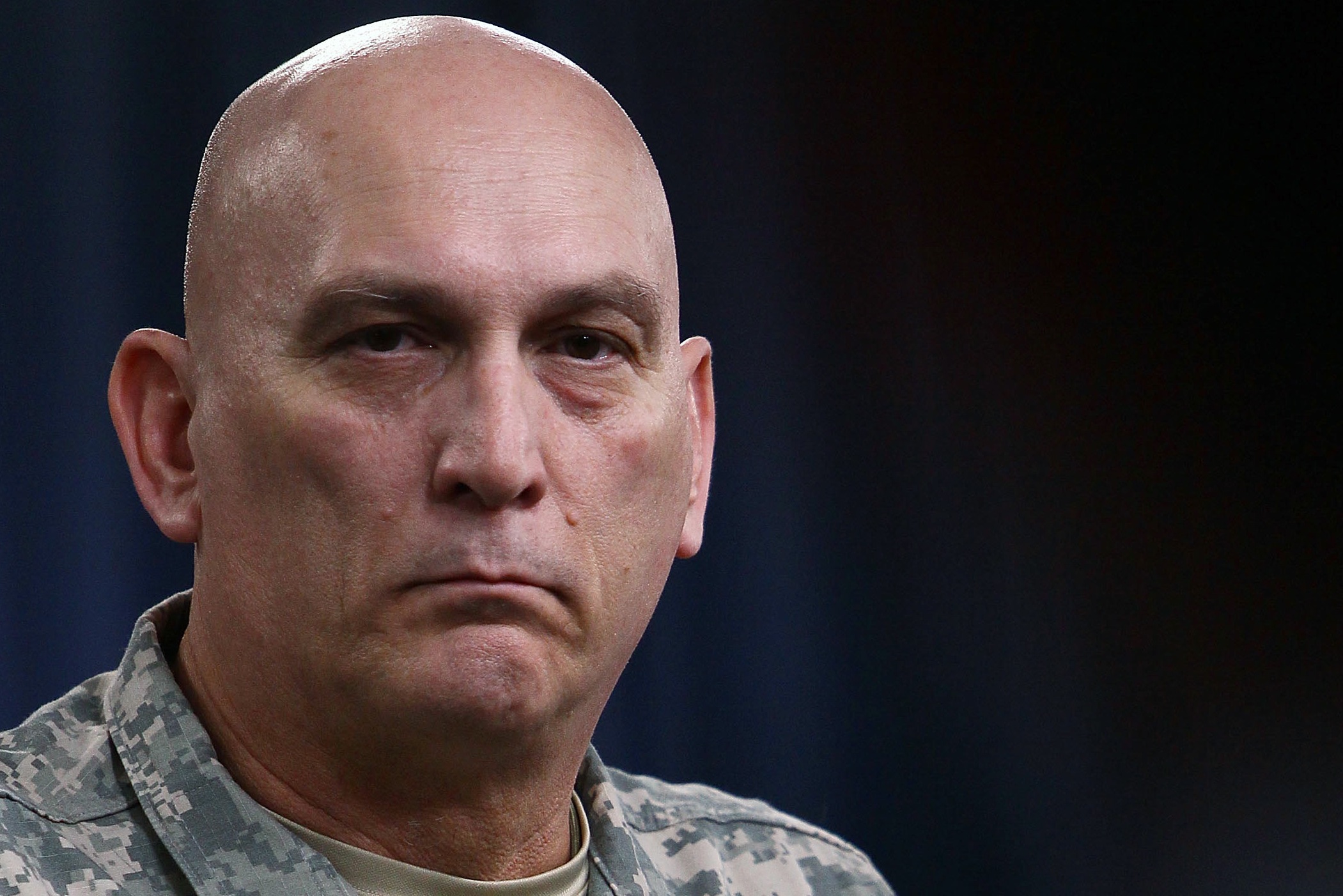
But such early progress proved elusive later on in both Iraq and Afghanistan. Odierno has felt that shortfall, personally. Eight months after Saddam’s capture, Odierno’s son, Tony, an Army captain and West Point graduate like his father, lost his left arm to an RPG round that killed the driver of his Humvee. Friday’s breakfast had been delayed a month because the original date conflicted with honors for Army Major General Harold Greene. The most senior U.S. officer to die in the wars following 9/11, Greene had been killed by a member of the Afghan army, a supposed ally.
Those were low points in what has become a 13-year grind, and that threatens—despite Obama’s best intentions—to continue for years to come. Has it been worth it?
To his credit, Odierno didn’t respond with a reflexive “Yes.” The hulking, nearly 6-foot-6, bald-headed general said he has been asked the question before. That only makes his answer more credible:
That’s a very difficult question…The bottom line on all of this is, as I think my way through this, is that first, as a soldier, what we do is we try to provide the capability to try to provide security for the nation. And we try to conduct the missions we’re given. As we’ve worked our way through this, one of the lessons I’ve learned is that military power is not the solution to everything—it’s got to be a combination of many other things—military, economic, political, diplomatic, et cetera, et cetera, et cetera. I would even argue in my area of operation in 2003—the violence was down, we had just captured the leader, things were looking pretty good—but there was an under-estimation of the societal devastation that had happened inside Iraq. The bottom line is that the Middle East is all inter-connected and it is going to cause problems and we have to stay involved in it. I don’t know what the end state is going to be yet.
What I do know is its terrorist groups are very threatening to both the United States and Europe. I brought some of our leaders up to New York to the 9/11 museum—I suggest everyone go, by the way, I suggest every American go to this 9/11 museum—and it was eerie listening to what was being said in 1991, ’92, ’93, ’94 by Osama bin Laden. It sounds very similar to what we’re hearing out of [ISIS] today. So we have to realize that this is a long-term threat that takes a long-term commitment. And if we don’t believe they want to attack the West and America, you’re kidding yourself…We have to make a decision on whether we are going to be pro-active in doing this, or are we going to wait until it’s too late.
So what’s helped me through all this is, I believe, we are attempting to be pro-active and to protect this country and the freedoms that we have. And I don’t want to sound Pollyannish, but I truly believe that. I think we have to continue to do this, although things have not gone the way I thought they would go. Things are not as smooth as I thought they would be. There’s been personal sacrifice, but not just by my family, but thousands of families in this country. I think we have to remember that there is, I believe, a threat to this country.
So has it been worth it?
I think it’s yet to be determined. I think this is going to be a long endeavor, and I think we have to let history decide that. I’m not willing to comment on that yet.
What’s surprising isn’t how little Odierno sounds a typical Army general, but how much he sounds like a typical American.
More Must-Reads from TIME
- Donald Trump Is TIME's 2024 Person of the Year
- Why We Chose Trump as Person of the Year
- Is Intermittent Fasting Good or Bad for You?
- The 100 Must-Read Books of 2024
- The 20 Best Christmas TV Episodes
- Column: If Optimism Feels Ridiculous Now, Try Hope
- The Future of Climate Action Is Trade Policy
- Merle Bombardieri Is Helping People Make the Baby Decision
Contact us at letters@time.com